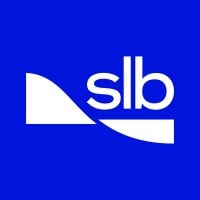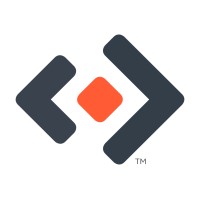
Adobe Commerce Company Cyber Security Posture
adobe.lyAdobe Commerce is the world’s leading digital commerce solution for merchants and brands. With Adobe Commerce, you can build engaging shopping experiences for every type of customer — from B2B and B2C to B2B2C. It’s built for enterprise on a scalable, open-source platform with unparalleled security, premium performance, and a low total cost of ownership. Businesses of all sizes can use it to reach customers wherever they are, across devices and marketplaces. It’s more than a flexible shopping cart system. It’s the building block for business growth.
Adobe Commerce Company Details
adobe-commerce
579 employees
122282
none
Technology, Information and Internet
adobe.ly
91
ADO_1464906
In-progress
Between 200 and 800
This score is AI-generated and less favored by cyber insurers, who prefer the TPRM score.
 Adobe Commerce Global Score
Adobe Commerce Global Score.png)

Adobe Commerce Company Scoring based on AI Models
| Model Name | Date | Description | Current Score Difference | Score |
|---|---|---|---|---|
| AVERAGE-Industry | 03-12-2025 | This score represents the average cybersecurity rating of companies already scanned within the same industry. It provides a benchmark to compare an individual company's security posture against its industry peers. | N/A | Between 200 and 800 |
Adobe Commerce Company Cyber Security News & History
| Entity | Type | Severity | Impact | Seen | Url ID | Details | View |
|---|---|---|---|---|---|---|---|
| Adobe Commerce | Vulnerability | 100 | 4 | 10/2024 | ADO000100724 | Link | |
Rankiteo Explanation : Attack with significant impact with customers data leaksDescription: Over 4,000 Adobe Commerce and Magento stores were hacked through the exploitation of a critical vulnerability, identified as CosmicSting (CVE-2024-34102). This attack allowed unauthorized reading of files, including passwords and other sensitive data. The attackers typically stole a secret cryptographic key and modified CMS blocks via the Magento API to inject malicious Javascript aimed at customer data theft. The exploitation led to the installation of payment skimmers in 5% of all Adobe Commerce and Magento store checkouts. Major organizations, such as Ray-Ban and Cisco, were affected, resulting in potentially severe financial and reputational damage. | |||||||
| Adobe Commerce and Magento | Vulnerability | 100 | 5 | 10/2024 | ADO000101024 | Link | |
Rankiteo Explanation : Attack threatening the organization’s existenceDescription: Over 4,000 Adobe Commerce and Magento stores suffered a massive security breach due to exploitation of the CosmicSting vulnerability, CVE-2024-34102. This critical flaw allowed attackers to run arbitrary code and install backdoors, jeopardizing sensitive customer and merchant data. Major brands like Ray-Ban, National Geographic, Cisco, Whirlpool, and Segway have been impacted, with attackers deploying payment skimmers in the affected e-stores. Despite Adobe's critical update and warnings, failure to invalidate old cryptographic keys left many merchants exposed, resulting in widespread financial and data losses for both companies and their customers during the summer. | |||||||
Adobe Commerce Company Subsidiaries

Adobe Commerce is the world’s leading digital commerce solution for merchants and brands. With Adobe Commerce, you can build engaging shopping experiences for every type of customer — from B2B and B2C to B2B2C. It’s built for enterprise on a scalable, open-source platform with unparalleled security, premium performance, and a low total cost of ownership. Businesses of all sizes can use it to reach customers wherever they are, across devices and marketplaces. It’s more than a flexible shopping cart system. It’s the building block for business growth.
Access Data Using Our API

Get company history
.png)
Adobe Commerce Cyber Security News
Alert: Adobe Commerce and Magento Stores Under Attack from CosmicSting Exploit
Researchers have disclosed that 5% of all Adobe Commerce and Magento stores have been hacked by malicious actors by exploiting a security vulnerability dubbed ...
Patch Tuesday: Critical Flaws in Adobe Commerce, Photoshop, InDesign, Illustrator
Adobe patches critical-severity bugs in multiple products, including the Adobe Commerce and Magento Open Source platforms.
Adobe Security Update - Patch for Multiple Vulnerabilities Across Products
Adobe has released a comprehensive set of security updates addressing multiple vulnerabilities across twelve of its products.
Over 4,000 Adobe Commerce, Magento shops hacked in CosmicSting attacks
Approximately 5% of all Adobe Commerce and Magento online stores, or 4275 in absolute numbers, have been hacked in.
Mass Retail Hacks Affect Adobe Commerce and Magento Stores
Thousands of online stores running Adobe Commerce and Magento software have been hacked since the summer and infected with digital payment ...
Hackers steal sensitive customer data from thousands of online stores that use Adobe tools
Distinct groups of cybercriminals have been exploiting the CosmicSting flaw in Adobe's Commerce and Magento software to steal customers' payment ...
Adobe Security Update: Critical Vulnerabilities Patched
Adobe announced a series of important security updates aimed at addressing several vulnerabilities across its product suite.
Adobe Security Update: Patches Released for Multiple Product Vulnerabilities
Adobe has announced critical security updates for several of its popular software products, addressing vulnerabilities that could ...
Hackers target online shoppers in new Adobe e-commerce malware campaign
A new malware campaign that steals payment information from online shoppers is targeting dozens of e-commerce sites that use Adobe's Magento ...

Adobe Commerce Similar Companies

Times Internet
At Times Internet, we create premium digital products that simplify and enhance the lives of millions. As India’s largest digital products company, we have a significant presence across a wide range of categories, including News, Sports, Fintech, and Enterprise solutions. Our portfolio features mar

Zomato
Zomato’s mission statement is “better food for more people.” Since our inception in 2010, we have grown tremendously, both in scope and scale - and emerged as India’s most trusted brand during the pandemic, along with being one of the largest hyperlocal delivery networks in the country. Today, Zoma

Myntra
At Myntra, we don’t just follow fashion - we define it. As India's leading fashion, lifestyle, and beauty destination, we bring together the best of style, technology, and innovation to create a seamless shopping experience for our customers. With a commitment to empowering self-expression, we cura

Fanatics
Fanatics is building a leading global digital sports platform. We ignite the passions of global sports fans and maximize the presence and reach for our hundreds of sports partners globally by offering products and services across Fanatics Commerce, Fanatics Collectibles, and Fanatics Betting & Gamin

SLB
We are a technology company that unlocks access to energy for the benefit of all. As innovators, that’s been our mission for nearly a century. Today, we face a global imperative to create a future with more energy, but less carbon. Our diverse, innovative change makers are focused on going further i

Cimpress
Cimpress plc (Nasdaq: CMPR) invests in and builds customer-focused, entrepreneurial, mass-customization businesses for the long term. Mass customization is a competitive strategy which seeks to produce goods and services to meet individual customer needs with near mass production efficiency. Cimpr

Frequently Asked Questions (FAQ) on Cybersecurity Incidents
Adobe Commerce CyberSecurity History Information
Total Incidents: According to Rankiteo, Adobe Commerce has faced 2 incidents in the past.
Incident Types: The types of cybersecurity incidents that have occurred include ['Vulnerability'].
Total Financial Loss: The total financial loss from these incidents is estimated to be {total_financial_loss}.
Cybersecurity Posture: The company's overall cybersecurity posture is described as Adobe Commerce is the world’s leading digital commerce solution for merchants and brands. With Adobe Commerce, you can build engaging shopping experiences for every type of customer — from B2B and B2C to B2B2C. It’s built for enterprise on a scalable, open-source platform with unparalleled security, premium performance, and a low total cost of ownership. Businesses of all sizes can use it to reach customers wherever they are, across devices and marketplaces. It’s more than a flexible shopping cart system. It’s the building block for business growth..
Detection and Response: The company detects and responds to cybersecurity incidents through {description_of_detection_and_response_process}.
Incident Details
Incident 1: Ransomware Attack
Title: {Incident_Title}
Description: {Brief_description_of_the_incident}
Date Detected: {Detection_Date}
Date Publicly Disclosed: {Disclosure_Date}
Date Resolved: {Resolution_Date}
Type: {Type_of_Attack}
Attack Vector: {Attack_Vector}
Vulnerability Exploited: {Vulnerability}
Threat Actor: {Threat_Actor}
Motivation: {Motivation}
Incident 2: Data Breach
Title: {Incident_Title}
Description: {Brief_description_of_the_incident}
Date Detected: {Detection_Date}
Date Publicly Disclosed: {Disclosure_Date}
Date Resolved: {Resolution_Date}
Type: {Type_of_Attack}
Attack Vector: {Attack_Vector}
Vulnerability Exploited: {Vulnerability}
Threat Actor: {Threat_Actor}
Motivation: {Motivation}
Common Attack Types: The most common types of attacks the company has faced are ['Vulnerability'].
Identification of Attack Vectors: The company identifies the attack vectors used in incidents through {description_of_identification_process}.
Impact of the Incidents
Incident 1: Ransomware Attack
Financial Loss: {Financial_Loss}
Data Compromised: {Data_Compromised}
Systems Affected: {Systems_Affected}
Downtime: {Downtime}
Operational Impact: {Operational_Impact}
Conversion Rate Impact: {Conversion_Rate_Impact}
Revenue Loss: {Revenue_Loss}
Customer Complaints: {Customer_Complaints}
Brand Reputation Impact: {Brand_Reputation_Impact}
Legal Liabilities: {Legal_Liabilities}
Identity Theft Risk: {Identity_Theft_Risk}
Payment Information Risk: {Payment_Information_Risk}
Incident 2: Data Breach
Financial Loss: {Financial_Loss}
Data Compromised: {Data_Compromised}
Systems Affected: {Systems_Affected}
Downtime: {Downtime}
Operational Impact: {Operational_Impact}
Conversion Rate Impact: {Conversion_Rate_Impact}
Revenue Loss: {Revenue_Loss}
Customer Complaints: {Customer_Complaints}
Brand Reputation Impact: {Brand_Reputation_Impact}
Legal Liabilities: {Legal_Liabilities}
Identity Theft Risk: {Identity_Theft_Risk}
Payment Information Risk: {Payment_Information_Risk}
Average Financial Loss: The average financial loss per incident is {average_financial_loss}.
Commonly Compromised Data Types: The types of data most commonly compromised in incidents are {list_of_commonly_compromised_data_types}.
Incident 1: Ransomware Attack
Entity Name: {Entity_Name}
Entity Type: {Entity_Type}
Industry: {Industry}
Location: {Location}
Size: {Size}
Customers Affected: {Customers_Affected}
Incident 2: Data Breach
Entity Name: {Entity_Name}
Entity Type: {Entity_Type}
Industry: {Industry}
Location: {Location}
Size: {Size}
Customers Affected: {Customers_Affected}
Response to the Incidents
Incident 1: Ransomware Attack
Incident Response Plan Activated: {Yes/No}
Third Party Assistance: {Yes/No}
Law Enforcement Notified: {Yes/No}
Containment Measures: {Containment_Measures}
Remediation Measures: {Remediation_Measures}
Recovery Measures: {Recovery_Measures}
Communication Strategy: {Communication_Strategy}
Adaptive Behavioral WAF: {Adaptive_Behavioral_WAF}
On-Demand Scrubbing Services: {On_Demand_Scrubbing_Services}
Network Segmentation: {Network_Segmentation}
Enhanced Monitoring: {Enhanced_Monitoring}
Incident 2: Data Breach
Incident Response Plan Activated: {Yes/No}
Third Party Assistance: {Yes/No}
Law Enforcement Notified: {Yes/No}
Containment Measures: {Containment_Measures}
Remediation Measures: {Remediation_Measures}
Recovery Measures: {Recovery_Measures}
Communication Strategy: {Communication_Strategy}
Adaptive Behavioral WAF: {Adaptive_Behavioral_WAF}
On-Demand Scrubbing Services: {On_Demand_Scrubbing_Services}
Network Segmentation: {Network_Segmentation}
Enhanced Monitoring: {Enhanced_Monitoring}
Incident Response Plan: The company's incident response plan is described as {description_of_incident_response_plan}.
Third-Party Assistance: The company involves third-party assistance in incident response through {description_of_third_party_involvement}.
Data Breach Information
Incident 2: Data Breach
Type of Data Compromised: {Type_of_Data}
Number of Records Exposed: {Number_of_Records}
Sensitivity of Data: {Sensitivity_of_Data}
Data Exfiltration: {Yes/No}
Data Encryption: {Yes/No}
File Types Exposed: {File_Types}
Personally Identifiable Information: {Yes/No}
Prevention of Data Exfiltration: The company takes the following measures to prevent data exfiltration: {description_of_prevention_measures}.
Handling of PII Incidents: The company handles incidents involving personally identifiable information (PII) through {description_of_handling_process}.
Ransomware Information
Incident 1: Ransomware Attack
Ransom Demanded: {Ransom_Amount}
Ransom Paid: {Ransom_Paid}
Ransomware Strain: {Ransomware_Strain}
Data Encryption: {Yes/No}
Data Exfiltration: {Yes/No}
Ransom Payment Policy: The company's policy on paying ransoms in ransomware incidents is described as {description_of_ransom_payment_policy}.
Data Recovery from Ransomware: The company recovers data encrypted by ransomware through {description_of_data_recovery_process}.
Regulatory Compliance
Incident 1: Ransomware Attack
Regulations Violated: {Regulations_Violated}
Fines Imposed: {Fines_Imposed}
Legal Actions: {Legal_Actions}
Regulatory Notifications: {Regulatory_Notifications}
Incident 2: Data Breach
Regulations Violated: {Regulations_Violated}
Fines Imposed: {Fines_Imposed}
Legal Actions: {Legal_Actions}
Regulatory Notifications: {Regulatory_Notifications}
Regulatory Frameworks: The company complies with the following regulatory frameworks regarding cybersecurity: {list_of_regulatory_frameworks}.
Ensuring Regulatory Compliance: The company ensures compliance with regulatory requirements through {description_of_compliance_measures}.
Lessons Learned and Recommendations
Incident 1: Ransomware Attack
Lessons Learned: {Lessons_Learned}
Incident 2: Data Breach
Lessons Learned: {Lessons_Learned}
Incident 1: Ransomware Attack
Recommendations: {Recommendations}
Incident 2: Data Breach
Recommendations: {Recommendations}
Key Lessons Learned: The key lessons learned from past incidents are {list_of_key_lessons_learned}.
Implemented Recommendations: The company has implemented the following recommendations to improve cybersecurity: {list_of_implemented_recommendations}.
References
Additional Resources: Stakeholders can find additional resources on cybersecurity best practices at {list_of_additional_resources}.
Investigation Status
Incident 1: Ransomware Attack
Investigation Status: {Investigation_Status}
Incident 2: Data Breach
Investigation Status: {Investigation_Status}
Communication of Investigation Status: The company communicates the status of incident investigations to stakeholders through {description_of_communication_process}.
Stakeholder and Customer Advisories
Incident 1: Ransomware Attack
Stakeholder Advisories: {Stakeholder_Advisories}
Customer Advisories: {Customer_Advisories}
Incident 2: Data Breach
Stakeholder Advisories: {Stakeholder_Advisories}
Customer Advisories: {Customer_Advisories}
Advisories Provided: The company provides the following advisories to stakeholders and customers following an incident: {description_of_advisories_provided}.
Initial Access Broker
Incident 1: Ransomware Attack
Entry Point: {Entry_Point}
Reconnaissance Period: {Reconnaissance_Period}
Backdoors Established: {Backdoors_Established}
High Value Targets: {High_Value_Targets}
Data Sold on Dark Web: {Yes/No}
Incident 2: Data Breach
Entry Point: {Entry_Point}
Reconnaissance Period: {Reconnaissance_Period}
Backdoors Established: {Backdoors_Established}
High Value Targets: {High_Value_Targets}
Data Sold on Dark Web: {Yes/No}
Monitoring and Mitigation of Initial Access Brokers: The company monitors and mitigates the activities of initial access brokers through {description_of_monitoring_and_mitigation_measures}.
Post-Incident Analysis
Incident 1: Ransomware Attack
Root Causes: {Root_Causes}
Corrective Actions: {Corrective_Actions}
Incident 2: Data Breach
Root Causes: {Root_Causes}
Corrective Actions: {Corrective_Actions}
Post-Incident Analysis Process: The company's process for conducting post-incident analysis is described as {description_of_post_incident_analysis_process}.
Corrective Actions Taken: The company has taken the following corrective actions based on post-incident analysis: {list_of_corrective_actions_taken}.
Additional Questions
General Information
Ransom Payment History: The company has {paid/not_paid} ransoms in the past.
Last Ransom Demanded: The amount of the last ransom demanded was {last_ransom_amount}.
Last Attacking Group: The attacking group in the last incident was {last_attacking_group}.
Incident Details
Most Recent Incident Detected: The most recent incident detected was on {most_recent_incident_detected_date}.
Most Recent Incident Publicly Disclosed: The most recent incident publicly disclosed was on {most_recent_incident_publicly_disclosed_date}.
Most Recent Incident Resolved: The most recent incident resolved was on {most_recent_incident_resolved_date}.
Impact of the Incidents
Highest Financial Loss: The highest financial loss from an incident was {highest_financial_loss}.
Most Significant Data Compromised: The most significant data compromised in an incident was {most_significant_data_compromised}.
Most Significant System Affected: The most significant system affected in an incident was {most_significant_system_affected}.
Response to the Incidents
Third-Party Assistance in Most Recent Incident: The third-party assistance involved in the most recent incident was {third_party_assistance_in_most_recent_incident}.
Containment Measures in Most Recent Incident: The containment measures taken in the most recent incident were {containment_measures_in_most_recent_incident}.
Data Breach Information
Most Sensitive Data Compromised: The most sensitive data compromised in a breach was {most_sensitive_data_compromised}.
Number of Records Exposed: The number of records exposed in the most significant breach was {number_of_records_exposed}.
Ransomware Information
Highest Ransom Demanded: The highest ransom demanded in a ransomware incident was {highest_ransom_demanded}.
Highest Ransom Paid: The highest ransom paid in a ransomware incident was {highest_ransom_paid}.
Regulatory Compliance
Highest Fine Imposed: The highest fine imposed for a regulatory violation was {highest_fine_imposed}.
Most Significant Legal Action: The most significant legal action taken for a regulatory violation was {most_significant_legal_action}.
Lessons Learned and Recommendations
Most Significant Lesson Learned: The most significant lesson learned from past incidents was {most_significant_lesson_learned}.
Most Significant Recommendation Implemented: The most significant recommendation implemented to improve cybersecurity was {most_significant_recommendation_implemented}.
References
Most Recent Source: The most recent source of information about an incident is {most_recent_source}.
Most Recent URL for Additional Resources: The most recent URL for additional resources on cybersecurity best practices is {most_recent_url}.
Investigation Status
Current Status of Most Recent Investigation: The current status of the most recent investigation is {current_status_of_most_recent_investigation}.
Stakeholder and Customer Advisories
Most Recent Stakeholder Advisory: The most recent stakeholder advisory issued was {most_recent_stakeholder_advisory}.
Most Recent Customer Advisory: The most recent customer advisory issued was {most_recent_customer_advisory}.
Initial Access Broker
Most Recent Entry Point: The most recent entry point used by an initial access broker was {most_recent_entry_point}.
Most Recent Reconnaissance Period: The most recent reconnaissance period for an incident was {most_recent_reconnaissance_period}.
Post-Incident Analysis
Most Significant Root Cause: The most significant root cause identified in post-incident analysis was {most_significant_root_cause}.
Most Significant Corrective Action: The most significant corrective action taken based on post-incident analysis was {most_significant_corrective_action}.
What Do We Measure?
















Every week, Rankiteo analyzes billions of signals to give organizations a sharper, faster view of emerging risks. With deeper, more actionable intelligence at their fingertips, security teams can outpace threat actors, respond instantly to Zero-Day attacks, and dramatically shrink their risk exposure window.
These are some of the factors we use to calculate the overall score:
Identify exposed access points, detect misconfigured SSL certificates, and uncover vulnerabilities across the network infrastructure.
Gain visibility into the software components used within an organization to detect vulnerabilities, manage risk, and ensure supply chain security.
Monitor and manage all IT assets and their configurations to ensure accurate, real-time visibility across the company's technology environment.
Leverage real-time insights on active threats, malware campaigns, and emerging vulnerabilities to proactively defend against evolving cyberattacks.




